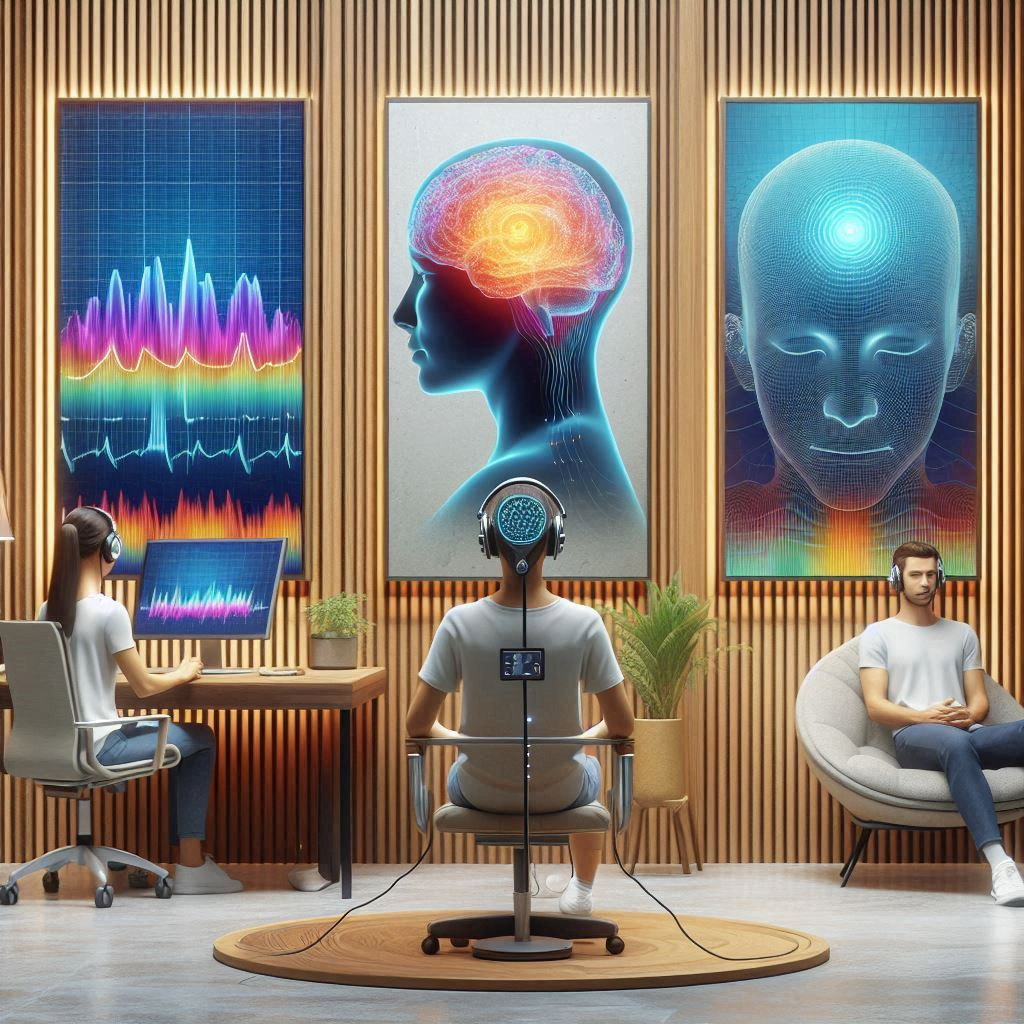Introduction
Bali is renowned for its stunning landscapes, rich cultural heritage, and spiritual significance. It has long been a magnet for individuals seeking inner peace and personal transformation. The island’s serene environment, paired with its deep-rooted traditions, makes it the perfect destination for Bali mindfulness retreats with neurofeedback. These retreats not only focus on ancient practices but also merge tradition with innovation. Today, a fresh wave of wellness retreats in Bali blends mindfulness practices with modern neurofeedback technology to offer a one-of-a-kind experience.
Why Bali?
Bali’s allure goes beyond its picturesque beaches and lush jungles. The island’s rich culture is rooted in spirituality and emphasizes balance and harmony with nature. For this reason, Bali mindfulness retreats with neurofeedback have become the ideal choice for those looking to rejuvenate their mind, body, and spirit. Bali’s peaceful atmosphere, combined with its unique spiritual traditions, provides the perfect setting for these retreats that focus on reflection and personal growth.
The Evolution of Wellness Retreats in Bali
Over the years, Bali has become a global hotspot for wellness retreats. Traditionally, these retreats emphasized yoga, meditation, and holistic healing practices. Participants would immerse themselves in yoga, meditation, and traditional Balinese ceremonies that aim to restore balance and harmony. However, as the wellness industry evolves, so do the retreat offerings. Today, innovative technology like neurofeedback is being integrated into traditional practices, offering a more comprehensive wellness experience.
Understanding Neurofeedback
To appreciate the fusion of ancient practices and modern technology, it’s essential to understand neurofeedback. Neurofeedback, a form of biofeedback, monitors brainwave activity in real-time. It uses sensors placed on the scalp to track brainwaves and provide feedback on mental states, such as relaxation, focus, and stress levels. This feedback enables individuals to regulate their brain function, enhancing their mental and emotional well-being.
How Neurofeedback Works
In a neurofeedback session, participants wear EEG sensors that monitor brainwave activity. The data is then processed by a computer, which provides real-time feedback using visual or auditory cues. For instance, if a participant is trying to achieve deep relaxation, the feedback indicates when they are entering that state. Over time, participants learn to optimize their brain function, improving their ability to manage stress and focus while achieving a deeper sense of calm.
Combining Tradition and Technology
In Bali, many wellness retreats are now integrating neurofeedback into their programs. This unique approach combines traditional Balinese mindfulness practices with modern neurofeedback technology to create a holistic wellness experience.
Traditional Balinese Practices

- Balinese Meditation: Rooted in Hindu-Buddhist traditions, Balinese meditation emphasizes deep breathing, visualization, and mantra chanting. These practices aim to promote inner peace and a stronger spiritual connection, helping individuals quiet their minds and tune in to their inner selves.
- Yoga: Yoga is a cornerstone of wellness retreats in Bali. Daily sessions often incorporate elements of Balinese spirituality, such as mindfulness and respect for nature. Yoga helps improve physical health and supports mental and emotional well-being.
- Healing Ceremonies: Known as melukat, Balinese healing ceremonies involve sacred rituals, prayers, and herbal remedies designed to cleanse the body and spirit. These ceremonies, led by Balinese healers, help participants restore balance and harmony.
Modern Neurofeedback Techniques

- Brainwave Optimization: Neurofeedback technology allows participants to monitor brainwave activity during meditation or relaxation exercises. This real-time data shows how mental states shift and helps participants fine-tune their meditation practice.
- Personalized Mindfulness Training: Neurofeedback provides insight into each participant’s unique brain patterns. Facilitators can use this information to tailor mindfulness practices to the individual’s needs, creating a more personalized and effective experience.
- Emotional Regulation: Neurofeedback enhances the ability to manage emotions. By learning to control brainwaves, participants can build emotional resilience and reduce the negative effects of stress and anxiety.
The Benefits of This Fusion
Combining ancient mindfulness practices with modern neurofeedback technology offers several benefits:
- Enhanced Learning: Neurofeedback accelerates learning by providing real-time feedback on brain activity. This allows participants to quickly identify effective practices and make adjustments for better results.
- Customized Experience: Since every brain is unique, neurofeedback creates a tailored mindfulness experience. This personalization ensures that the retreat meets individual needs and goals, leading to a more fulfilling experience.
- Deep Relaxation: The fusion of mindfulness and neurofeedback helps participants reach deeper relaxation states and mental clarity. This enhances the retreat experience and leads to long-term benefits that carry over into daily life.
- Sustainable Results: Skills and insights gained from neurofeedback can be applied well beyond the retreat. Participants leave with tools that help manage stress, improve focus, and maintain emotional balance long after returning home.
The Benefits of This Fusion
For those interested in this innovative approach, here are a few top retreats in Bali offering the fusion of traditional practices and neurofeedback technology:
- Fivelements Retreat: Located in Ubud’s lush jungle, Fivelements is renowned for its luxurious wellness programs that integrate traditional Balinese healing with modern neurofeedback technology. This serene retreat offers participants the perfect space to reconnect with themselves.
- Como Shambhala Estate: Situated in a peaceful corner of Bali, Como Shambhala Estate provides a holistic wellness experience. The estate combines ancient practices with cutting-edge technology, including neurofeedback, to offer personalized programs.
- Soulshine Bali: Founded by musician Michael Franti, Soulshine Bali blends yoga, meditation, and neurofeedback. Set in a breathtaking natural environment, the retreat helps participants enhance well-being through a unique mix of traditional and modern practices.
A Day in the Life at a Mindfulness Retreat with Neurofeedback
Curious about what a day at a mindfulness retreat with neurofeedback looks like? Here’s a typical itinerary:
- Morning Yoga and Meditation: Start the day with an outdoor yoga session, followed by guided meditation. Neurofeedback is used during meditation to track brainwave activity, helping participants achieve deeper relaxation.
- Neurofeedback Sessions: Throughout the day, participants can attend neurofeedback sessions to refine their mindfulness practices. These sessions provide real-time feedback on brain activity, allowing participants to make adjustments.
- Balinese Healing Ceremonies: Retreats often include traditional healing ceremonies that cleanse the body and spirit, promoting balance and harmony.
- Personalized Coaching: One-on-one coaching sessions offer personalized guidance, using neurofeedback data to tailor the retreat experience.
- Evening Relaxation: The day ends with calming activities, such as gentle yoga, nature walks, or meditation, helping participants unwind and prepare for restful sleep.
How to Choose the Right Retreat for You
With many retreats available in Bali, selecting the right one can be challenging. Here are some tips to help you make the right choice:
- Identify Your Goals: Clarify what you want to achieve. Whether you’re seeking relaxation, emotional balance, or deepening your mindfulness practice, choose a retreat that aligns with your objectives.
- Research the Facilitators: Look for experienced facilitators who understand both traditional practices and neurofeedback technology. Their expertise can significantly impact your retreat experience.
- Check Reviews: Reading reviews from past participants can offer valuable insights. Consider feedback on the accommodations, program effectiveness, and overall experience.
- Consider the Location: Bali offers diverse experiences depending on the region. Choose between lush jungles, tranquil beaches, or cultural centers based on your preferences.
Conclusion: Embrace the Future of Mindfulness in Bali
Bali has long been a destination for those seeking spiritual growth and personal transformation. As the wellness industry continues to evolve, the fusion of ancient Balinese practices with modern neurofeedback technology offers an innovative and transformative experience. Whether you’re new to mindfulness or a seasoned practitioner, these retreats provide a unique opportunity to deepen your practice, enhance well-being, and experience the magic of Bali in a new way.






